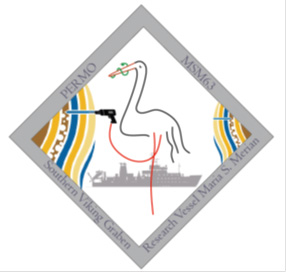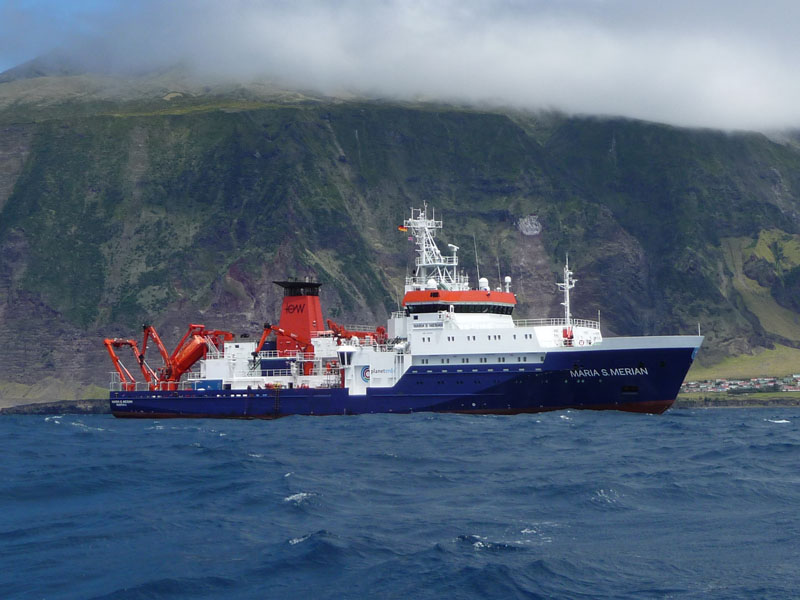MARIA S. MERIAN MSM63
- Area:
- North Sea
- Time:
-
29.04.2017 - 25.05.2017
- Institution:
- GEOMAR
- Chief scientist:
- Christian Berndt
The migration of fluids in marine sediments is an important geological process in the marine environment and controls the distribution and functioning of hydrocarbon resources, benthic and sub-seafloor ecosystems, natural and exploration-related geohazards, the carbon cycle and the Earth's climate. Although seismic pipes and chimneys are common features in seismic reflection data and their interpretation as focused fluid flow conduits is well-established, their nature and in particular their permeability is poorly understood. On this cruise MSM63 (Chiefscientist Prof. Christian Berndt) we devised a comprehensive geophysical field program to constrain chimney permeability, including the collection of high-resolution 3D seismic data and in addition use ocean bottom seismometer and electromagnetic instruments to obtain a complete and diverse geophysical dataset of the target area. During the 2nd Leg the British Geological Survey’s sea floor drilling apparatus RockDrill2 is used to sample the interior of a pipe structure directly. Here, the studies focus on a typical pipe structure which was previously studied during industrial exploration and is located close to Statoil’s CO2 storage site at the Sleipner Field in the North Sea. Two PhD students which are funded through the STEMM-CCS project will evaluate the data. In addition, also terrestrial rock samples (field analogues) from the Colorado Plateau will be analyzed to gain a better understanding of the natural permeability variations inside such pipe structures. This work package within the STEMM-CCS project is coordinated by the GEOMAR and the work will be conducted in close collaboration with colleagues from the U.K. and Norway.



